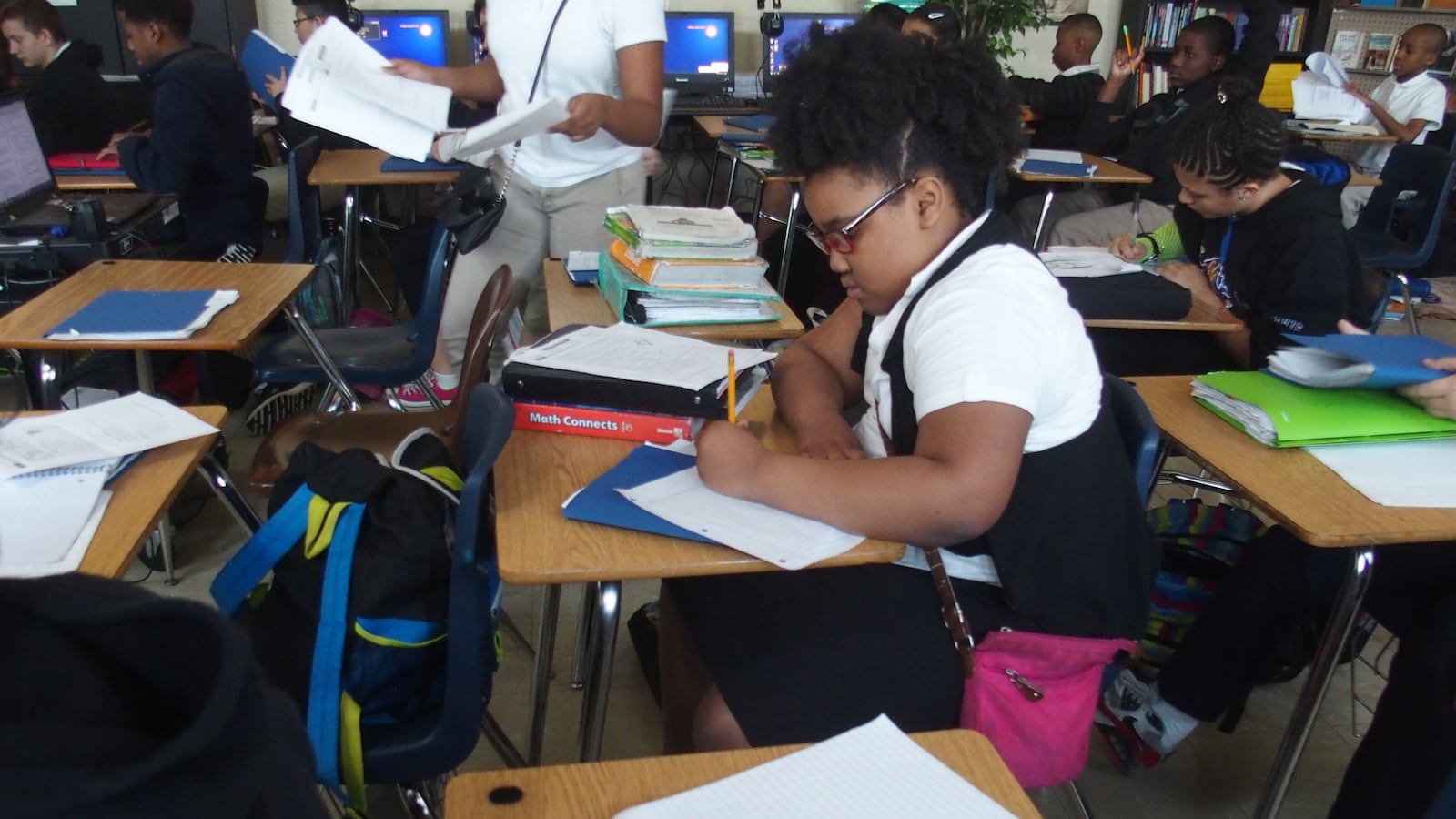A $10 million philanthropic grant for school turnaround work by Shelby County Schools ensures expansion of the one of the embattled district’s most successful initiatives, district leaders said Wednesday.
The three-year grant to the Innovation Zone comes from Teacher Town Memphis, a coalition of national and local funders who wish to remain anonymous.
It is the largest donation made to the district’s iZone, a cluster of 17 low-performing schools receiving flexibility to implement intensive operational and academic changes to improve student achievement.
It also represents a vote of confidence in the district’s school turnaround work from the city’s philanthropic community, which in recent years has invested heavily in charter schools overseen by the state-run Achievement School District.
“This is recognition that what we’re doing is working,” Superintendent Dorsey Hopson told the Shelby County Board of Education Tuesday evening in announcing the grant.
The money provides additional resources to the iZone beyond federal funding, which has paid for the lion’s share of the district’s school turnaround work.
Currently, 10,000 of the district’s 109,000 students are part of the iZone. The Teacher Town grant is contingent upon growing that number to 11,000 students in the 2016-17 school year and 12,000 in 2017-18. The money will be distributed in increments of $3 million this year, $3 million next year and $4 million the following year.
“This is going to be a real boon to our expansion,” chief innovation officer Brad Leon said Wednesday.
The district is exploring expansions that might include Westwood, Mitchell and Douglass high schools next school year.
However, operating an iZone school is expensive — mainly because of costs related to adding an hour onto every school day — the equivalent of 23 more school days in a year. “It’s a significant investment, but we believe that kids who are this far behind need additional class time to catch up,” Leon said.
Other expenses include signing and retention bonuses to attract and keep the best educators and providing iZone staff to support teachers and principals. In all, it takes an additional $250,000 to $475,000 to place a school in the iZone, which this year has a total budget of $7 million in a district adjusting to shrinking enrollment and funding.
Teacher Town Memphis supports the work of entities that provide students with high-quality options, focusing primarily on transforming the bottom 5 percent of Memphis schools, said Tosha Downey, the organization’s advocacy director.
“People consistently say that the iZone is expensive, but it’s also impactful,” Downey said.
Shelby County Schools launched its iZone in 2012 under a 2010 state law giving special flexibilities and federal money to traditional public school districts to improve chronically underperforming schools at risk of state intervention.
The Teacher Town grant is one of a series of recent philanthropic investments this year in the iZone, which also received $1 million from the Assisi Foundation and $2.6 million from the Plough Foundation.

Hopson cited the initiative’s successes for generating new support from within the Memphis community.
“There’s been a big focus on priority schools in Memphis, and Shelby County philanthropy has raised a considerable amount of money to support charter schools,” he said. “But if you look at all the priority schools, … we are the (charter management organization) with the best results so far.”
Last year, most iZone schools saw their math scores rise, and many raised the proportion of students meeting the state’s standards in reading, bucking a statewide trend. (See our six charts showing this year’s test scores in the iZone, Shelby County Schools and the Achievement School District in Memphis, the hub of Tennessee’s school turnaround work.)
Leon praised backers of Teacher Town Memphis for recognizing the iZone’s results and allowing the district to build on its success.
“It inspires me that this money is going to support students in some of our lowest-performing schools to create a different reality for them,” he said, “and to support educators who are signing up to work with those students.”
Editor’s note: This story corrects an earlier version to show that most iZone funding comes from federal School Improvement Grants, not the federal Race to the Top grant.


